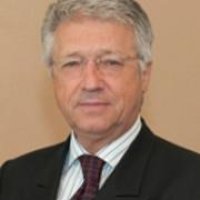The Working Group on the Western Balkans: Confronting Illegitimacy
The EU and the US agree that the long-term goal for the Western Balkans is European integration. For a variety of reasons, however, progress on this goal has stalled. This series aims at launching a discussion on the hurdles to enlargement in the Western Balkans, the tools available to various international actors in the region, and how these resources might best be applied to reach the goal of integration most efficiently. These meetings, therefore, address issues that are at the core of the making the Transatlantic relationship work.
Democracy and legitimacy are closely linked: democratic elections empower legitimate officials to run state institutions that operate within the rule of law. In the Western Balkans, however, there are multiple challenges to legitimate institutions including, parallel power structures, corruption, low confidence in the judiciary and contested elections, to name a few. The result is that it is difficult for civil society to pursue its goals through democratic institutions or elections, and individuals have a hard time seeking remedies through state courts.
The EU accession process is making a limited impact on improving legitimacy and democracy in the region. Working Group participants will discuss the sources of illegitimacy in the region and how the Transatlantic partners can work to improve the quality of democracy in the region.
9:45 Coffee
10:00am Meeting begins; Welcome and Introduction by Nida Gelazis, Senior Associate, European Studies
Discussion questions: How is the EU accession agenda and other international policy goals (such as the ICTY) undermined by nationalist rhetoric in the Western Balkans? How has the market transition created opportunities for elected leaders or political parties to capture state institutions or profit directly from privatization?
Introduction to the topic:
Jelena Subotic, Assistant Professor of Political Science, Georgia State University
John Gould, Chair and Associate Professor of Political Science, Colorado College
12:00 Lunch
1:00 How have internationally-driven policies to combat corruption and organized crime missed their mark? How can EU accession compete with internal incentives that support ‘business as usual’?
Introduction to the topic:
Timothy Donais, Associate Professor in the Department of Global Studies, Wilfrid Laurier University Stefan Popov, Executive Director, RiskMonitor Foundation
Whit Mason, Director of Political Risk Analysis, Pty, Ltd; Non-resident fellow of the Lowy Institute for International Policy and Visiting Fellow at the Australian National University
3:00 Meeting ends
Participants:
Ambassador Robert Beecroft
U.S. Department of State
Mietek Boduszynski
U.S. Department of State
David Bosco
American University
Michael Dziedzic
USIP
Nida Gelazis
Wilson Center
John Gould
Colorado College
John Lampe
University of Maryland and WWICS Scholar
James O’Brien
Albright Stonebridge Group
Ambassador Wolfgang Petritsch
Delegation of Austria to the OECD
Andrew Radin
MIT and WWICS Scholar
Dusan Reljic
Stiftung Wissenschaft und Politik
Robert Benjamin
National Democratic Institute
Ian Bond
British Embassy
Matt Palmer
U.S. Department of State
Timothy Donais
Wilfrid Laurier University
Sharon Fisher
IHS Global Insight
Gisella Gori
EU Delegation
James Hooper
Public International Law & Policy Group
Whit Mason
Australian National University
Ginta Palubinskas
George Mason University and WWICS Scholar
Stefan Popov
RiskMonitor Foundation
Akis Sakellariou
CSIS
Kelsi Stine
Project on Justice in Times of Transition
Jelena Subotic
Georgia State University
Speakers

Senior Economist, Global Insight

Professor Emeritus, Department of History, University of Maryland, College Park

George Mason University
Ph.D. candidate, Department of Political Science, Massachusetts Institute of Technology
Hosted By

Global Europe Program
The Global Europe Program is focused on Europe’s capabilities, and how it engages on critical global issues. We investigate European approaches to critical global issues. We examine Europe’s relations with Russia and Eurasia, China and the Indo-Pacific, the Middle East and Africa. Our initiatives include “Ukraine in Europe”—an examination of what it will take to make Ukraine’s European future a reality. But we also examine the role of NATO, the European Union and the OSCE, Europe’s energy security, transatlantic trade disputes, and challenges to democracy. The Global Europe Program’s staff, scholars-in-residence, and Global Fellows participate in seminars, policy study groups, and international conferences to provide analytical recommendations to policy makers and the media. Read more
